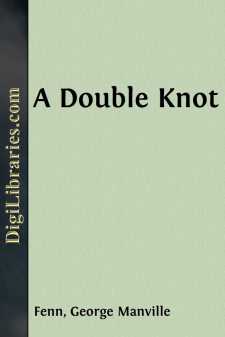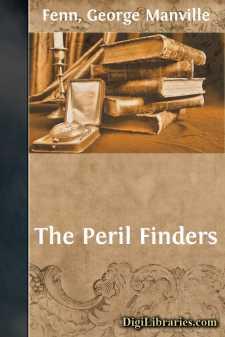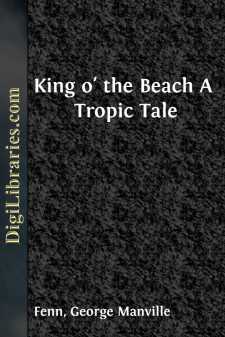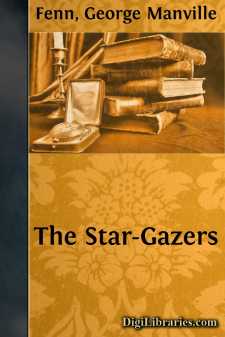Categories
- Antiques & Collectibles 13
- Architecture 36
- Art 48
- Bibles 22
- Biography & Autobiography 813
- Body, Mind & Spirit 142
- Business & Economics 28
- Children's Books 14
- Children's Fiction 11
- Computers 4
- Cooking 94
- Crafts & Hobbies 4
- Drama 346
- Education 46
- Family & Relationships 57
- Fiction 11829
- Games 19
- Gardening 17
- Health & Fitness 34
- History 1377
- House & Home 1
- Humor 147
- Juvenile Fiction 1873
- Juvenile Nonfiction 202
- Language Arts & Disciplines 88
- Law 16
- Literary Collections 686
- Literary Criticism 179
- Mathematics 13
- Medical 41
- Music 40
- Nature 179
- Non-Classifiable 1768
- Performing Arts 7
- Periodicals 1453
- Philosophy 64
- Photography 2
- Poetry 896
- Political Science 203
- Psychology 42
- Reference 154
- Religion 513
- Science 126
- Self-Help 84
- Social Science 81
- Sports & Recreation 34
- Study Aids 3
- Technology & Engineering 59
- Transportation 23
- Travel 463
- True Crime 29
A Little World
Description:
Excerpt
Duplex Street.
“Some people are such fools!” said Richard Pellet; and, if public judgment was right, he knew what a fool was as well as any man in the great city of London. He was a big man was Richard Pellet, Esq., C.C., shipper, of Austin Friars, and known among city men as “the six-hundred-pounder;” and he knew a fool when he saw one. But whether at his office in the city, or down at his place at Norwood,—“his little place at Norwood,” where he had “a morsel of garden” and “a bit of glass,” and grew pine and melon, peach and grape, and had a fat butler in black, and a staff of servants in drab, trimmed with yellow coach-lace,—no matter where Richard Pellet might be, he could always see in his mind’s eye the greatest fool that ever breathed—the man whom he was always mentally abusing—to wit, his brother Jared.
But Jared Pellet always was a fool—so his brother said; and he was continually filling the foolish cup of his iniquitous folly fuller and more full. He was a fool to be tyrannised over by his brother when a boy, and to take all the punishment that should have fallen to Richard’s share; he was a fool to marry Lizzie Willis, who had not a penny, when Richard would have given his ears to stand in his shoes; he was a fool for being happy—loved and loving; he was a fool to have such a large family; he was a fool for being a poor struggling man, while his brother was so rich; in short, taking Richard Pellet’s opinion—which must have been correct, seeing how wealthy, and stout, and clean shaven, and respected he was—there was not a bigger fool upon the face of the earth!
Just as if it was likely that a man could get a living in Clerkenwell by mending musical instruments in so unmusical a place; doctoring consumptive harmoniums; strengthening short-winded concertinas; re-buffing a set of hammers, or tuning pianos and putting in new strings at one shilling each.
However, living or no living, Jared Pellet rented a house in Duplex Street, Clerkenwell; and there was a brass plate on the door, one which Patty Pellet brightened to such an extent that when the sun did shine in Duplex Street—which was not often—it would kiss the bright metal and then shoot off at various angles to dart into darksome spots where, directly, he seldom or never shone.
It was a bright plate that, and a couple more years of such service would have oiled and rotten-stoned and rubbed and polished out the legend, “J. Pellet, Pianoforte Tuner;” for at this time there was but little of the original black composition left in the letters, and as for the corner flourishes, they were quite gone. But there was a board up over the front parlour window, bearing, in gold letters, much decayed, the self-same legend, with the addition of “Musical Instruments Carefully Repaired;” while, so that there might be no mistake about the indweller’s occupation, a couple of doleful-looking, cracked, and wax-ended clarionets sloped from the centre hasp to either side of the said front parlour window; and where by rights there should have been one of those folding-door green Venetian barred blinds so popular in the district, there graced the bottom panes—“The Whole Art of Singing,” “Beaustickski’s Violin Tutor,” and “Instructions for the Concertina”—fly-stained and dust-tarnished books, that had been put in on Monday mornings and taken out again on Saturday nights, in company with the cracked clarionets, ever since Jared Pellet had hired the place, and determined upon keeping it private on Sundays....












